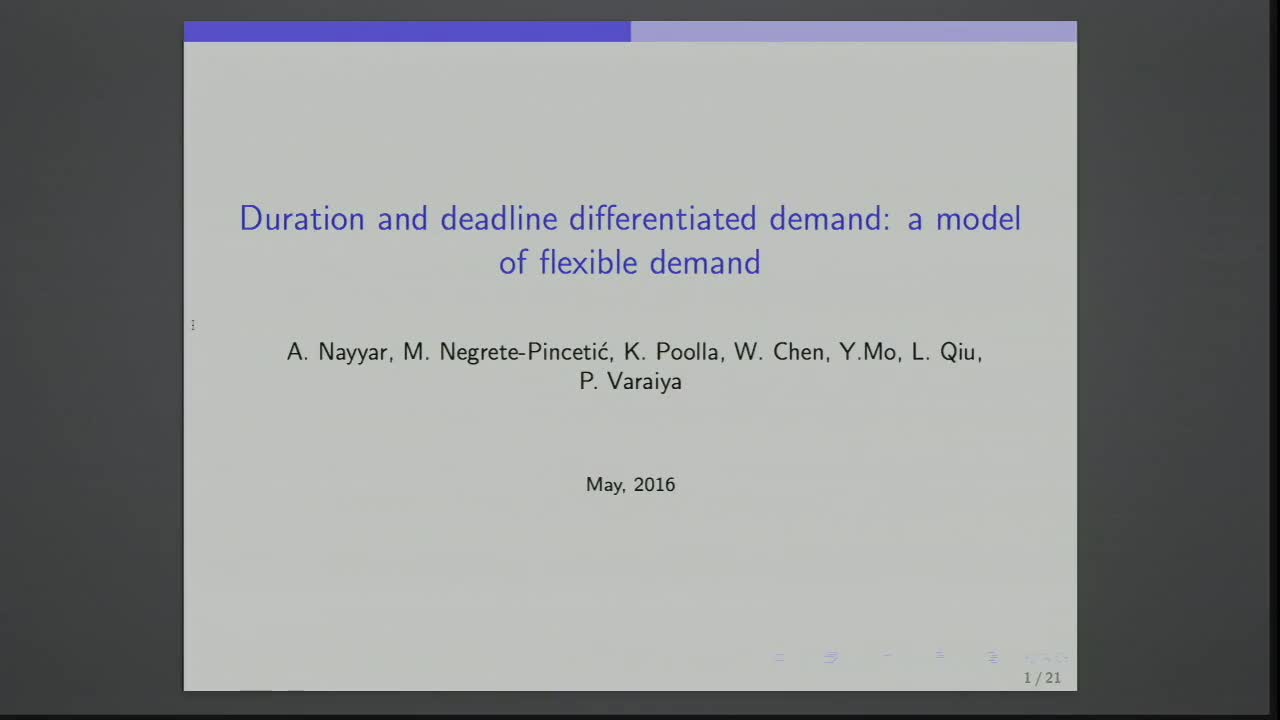Duration and deadline differentiated electricity demand: a model of flexible demand
Presenter
May 9, 2016
Keywords:
- Demand flexibility; scheduling tasks; competitive equilibrium
Abstract
Time is slotted, t= 1,…,T. p(t) kW of power is available in slot t. There are n = 1,… ,N tasks. Task n needs 1kW for a duration h(n) slots: it is flexible in that any h(n) out of T slots will work, i.e. the task is pre-emptible.
Let d(t) be the number of tasks that require at least t slots, so d(1) ≥d(2) … ≥d(T). Order the time slots so that p(1) ≥p(2) … ≥p(T). The available power can execute all tasks if and only if p(s) + … +p(T) ≥ d(s) + … +d(T), for every s.
Suppose there is a continuum of consumers indexed x in [0,1]. Each x wants to execute T tasks L(x) = (l(1,x),…,l(T,x)), in which task h needs l(h,x) kW for h slots. The consumer gains utility U(x,L(x)) from the execution of L(x). So
d(t)=∫_0^1▒〖l(h,x)1(h≥t)dx〗
is the aggregate kW demand of tasks that need at least t slots. The available power can be allocated to execute all these tasks if and only if p(s) + … +p(T) ≥ d(s) + … +d(T), for every s.
Furthermore there is a market for executing tasks (l,h) that need l kW for duration h with prices l × π(h) and a feasible task execution L(x) such that
L(x) ϵ argmax┬L〖 {U(L(x))〗 -∑_(h=1)^T▒〖l(h,x) × π(h)〗}
and the producer maximizes profits at these prices. There is a surprising generalization to the case when tasks have start and end deadlines together with duration.
Joint work with A. Nayyar, M. Negrete-Pincetic, K. Poolla, W. Chen, Y. Mo and L. Qiu.
